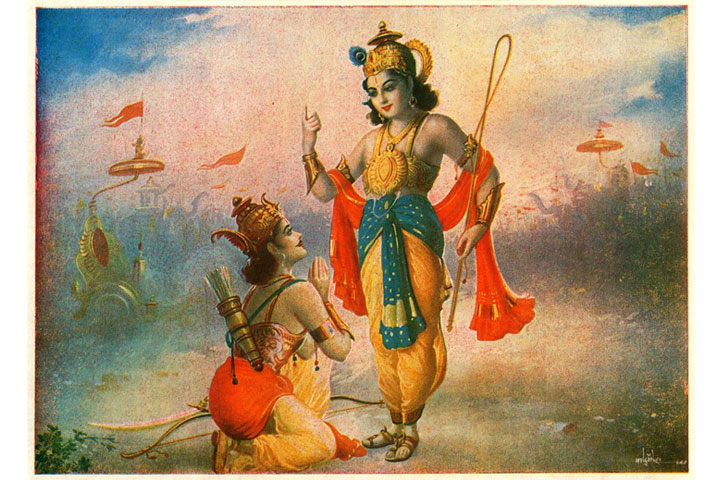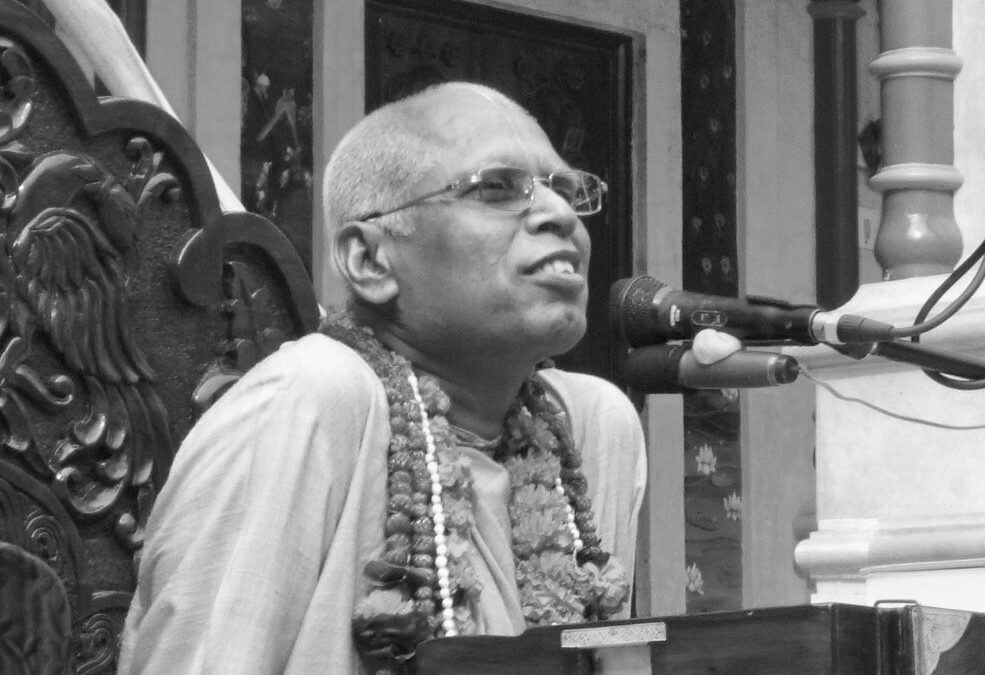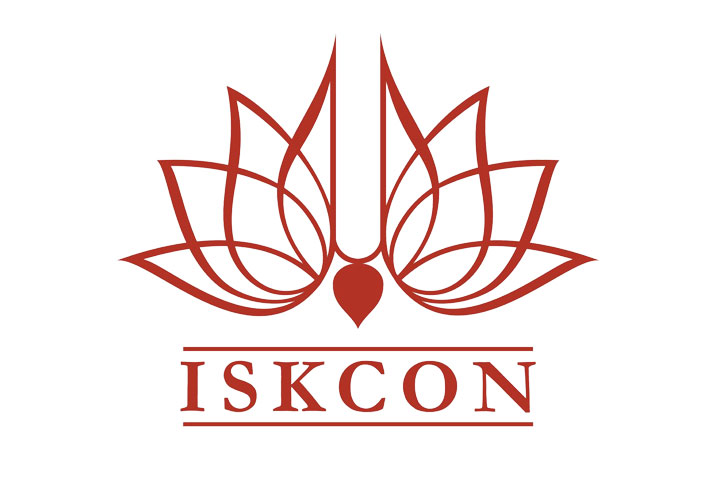The Arjuna Syndrome, Garuda

September 11, 2021
DO YOU HAVE “THE ARJUNA SYNDROME”?
My Dear Vaishnava Sisters and Brothers,
I offer all of you my affectionate praṇāmas. Jaya Śrīla Prabhupāda!
All our relationships in this life, according to our Bhakti tradition, are meant to teach us how to love, how to love purely, and ultimately how to offer all our hearts to the divine, Śrī Śrī Rādhā and Krishna.
However, undoubtedly, an essential part of our life experiences in Krishna Bhakti are at times personal vexing challenges, losses, and sadness within our attempts to connect with one another in loving devotee exchanges. Exercising the heart, deepening the heart, and developing a more sensitive heart, indeed, can involve painful experiences. And all of this is natural, and, at times, can also feel naturally unbearable.
However, there are certain challenges in our Vaishnava relationships that can push us beyond the limits of what might be considered normal challenges, or challenges one can be naturally expected in the course of pursuing fairly common dealings. The challenges I’m speaking of here is when evil and even criminal actions appear in our lives. Let me be even more specific: When we find ourselves in a relationship with another Vaishnava [or Vaishnavas], whom we have appreciated, and even loved, finding their company to be nourishing in many ways, only to later discover that they have an evil side, or past—they have hurt people in ways we could have never imagined.
This type of vexing and painful situation in which we all too commonly find ourselves in ISKCON, happens to be represented beautifully in a sort of paradigmatic way by Arjuna’s situation on the battlefield of Kurushetra: Arjuna loved, respected, and even revered many of those who appeared on the opposing side of the battlefield in the army of the Kurus—the enemies, the hurtful, destructive ones.
As such, Arjuna was faced with a painful conundrum, an irresolvable ethical dilemma: having to go to war—and even kill those who clearly represent evil—while internally battling with his love and affection for the very same people he aimed to destroy!
This extremely uncomfortable experience—with which the Bhagavad Gītā dramatically opens its narrative—is what I call the “Arjuna syndrome,” and possibly one of the most painful situations we as souls can find ourselves in: to see the evil before us, even when it has been carried out by a devotee. After all, the Gītā warns us that we not deceive ourselves and fall into denial, for “nothing comes from repression” (BG 3.33). Yet, when we accept that a person we love and admire has behaved in very harmful ways, it is painful.
I, personally, have been challenged by this Arjuna syndrome in my relationship with various different devotees over time. It hurts to discover that godbrothers of mine, for example, have used their position of authority to take advantage of devotees they were supposed to be guiding and inspiring.
It is true that we human beings have many sides to us. And it is true that we rarely know all sides of most of those with whom we interact. So, naturally, there is a certain amount of trust that we exercise with one another. We generally assume that most persons are good, that most devotees are upright even though we may struggle at times and that we may be involved in some hurtful dealings.
But when an unknown, dark side of a devotee emerges that is severely transgressive, and we become aware of behaviors of theirs that are tantamount to truly evil acts—even ones that are deemed criminal in most cultures, such as repeated child abuse—then these things can easily be seen as “unforgivable.”
Such acts, ones that are so destructive, so deeply hurtful, that they are utterly irreversible, bring us to understand “the Arjuna syndrome.” And, like Arjuna, when we are afflicted by the Arjuna syndrome, it hurls us into a most painful state of grief, śoka.
But just as Arjuna ultimately discovers, his “grief” turns into “grace.” If we can sit with this grief, acknowledge this grief, feel the pain of this grief (as Arjuna did), then we will, like Arjuna, see deeper understandings, deeper connections with the divine within, and the divine without. Can we appreciate the divinity who is right in front of us (albeit, perhaps in disguised forms), during such intense grieving in our lives, just as Krishna was right in front of Arjuna during his time of deep grief and despondence? And what is this grace asking of us when we find ourselves in such circumstances? Do we just sit by and allow the evil to continue, or do we get up and “fight,” as Arjuna did?
If so, how can we do this? I believe that there is no specific formula, as divine grace comes to us in many forms in the devotional life, and the ways it calls out to each of us will be uniquely corresponding to the inner gifts we can each offer to one another, and the Movement. But we can expect to create a positive effect in the world, in response to the evils we see, only if we are willing to honestly recognize the Arjuna syndrome fully: to admit that even people we love can behave in reprehensible ways.
Krishna may not be immediately visible to us (as he was to Arjuna), even though he is present in so many ways before us. But if we’re willing to do the kind of inner probing and introspection that Arjuna was willing to undergo through the guiding and loving hand of his “guru,” then divine grace naturally manifests so sweetly in our lives—and clarity about how to act in response will arrive.
Perhaps, the key is to seek closer, more authentic relationships with other Vaishnavas: connections that are based in integrity, honesty, openness, straightforwardness, etc. Only when we are willing to share as deeply with each other as Arjuna did with Krishna on the battlefield, and reciprocate by providing that attentive, caring, loving receptivity that Krishna gave to Arjuna, will we begin to end the denial that prevents us from seeing the evil before us, especially, when it hides in those we look up to and admire, like our gurus, teachers, friends, relatives, etc.
I grieve—along those with many others in our movement—for those who have been hurt by devotees, and then had their hurt dismissed by leaders, or buried under political manipulations for decades in a desperate attempt to salvage crumbling reputations. Ironically, it is these very desperate, hurtful reactions to abuse by leaders that are ruining the reputation of the movement. When will the leaders rise to the occasion with grace, as Arjuna did, and swing their swords toward the abusers, for once, instead of toward the victims.
At times like this I like to remind myself that, despite those who disappoint and harm us, there are also those in this world—dear devotees of the Lord—through whose hearts Krishna’s loving words to all humans will resound ever so clearly: “You are so much loved by me” (iṣto ‘si me dṛdham iti, BG 18.64). He loves us, in spite of ourselves! Such is the Lord’s affectionate compassion upon us.
Garuda Das, Ph.D. (acbsp)
![]()






